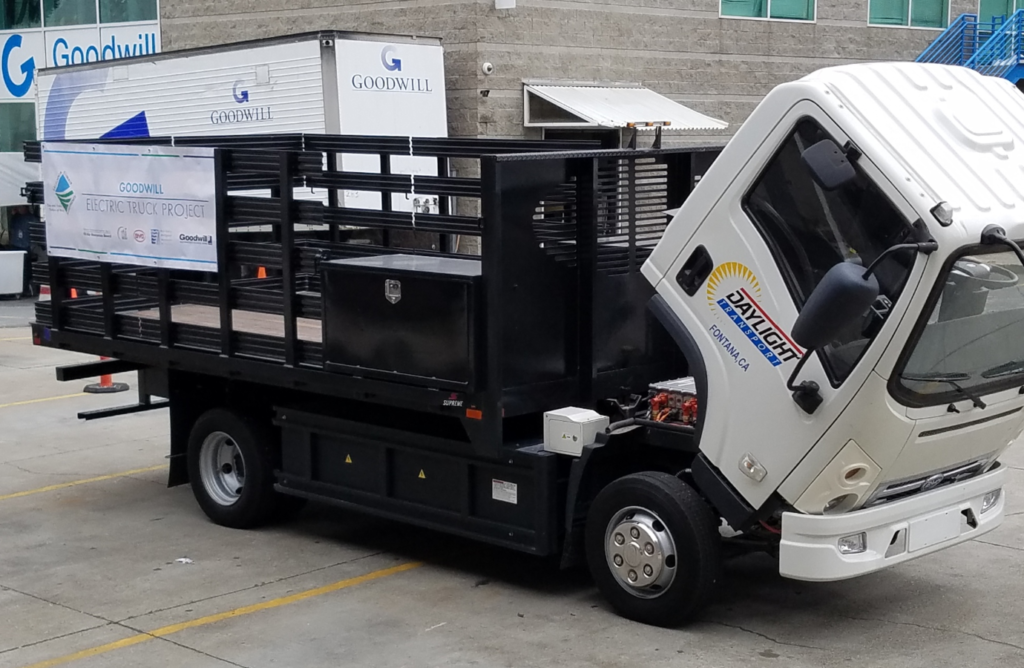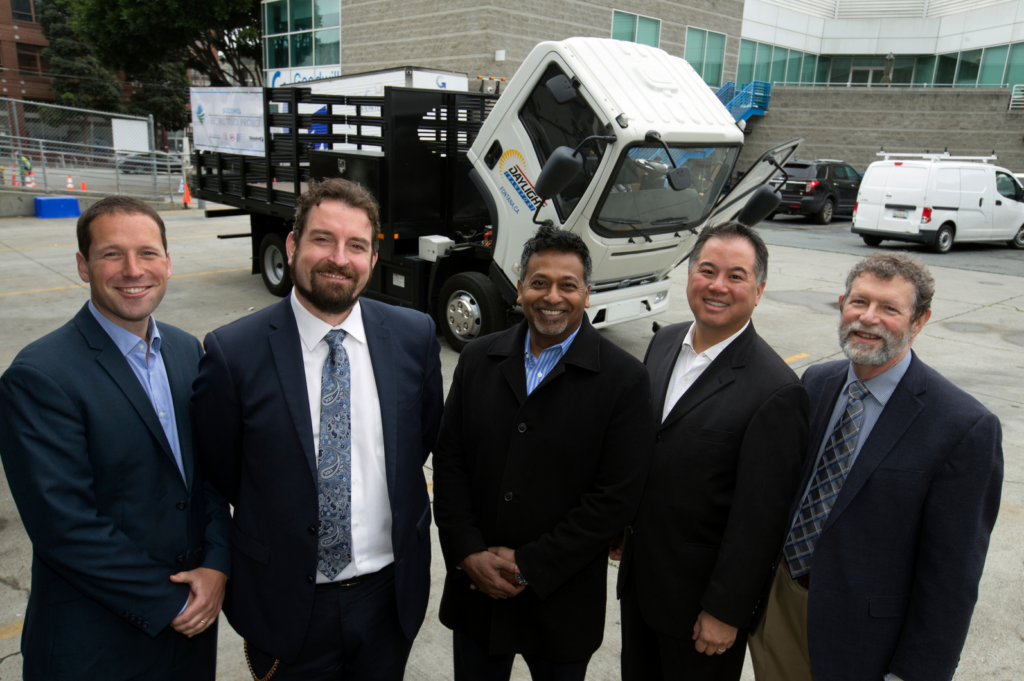BYD Partners with Goodwill on Electric Delivery Trucks in Bay Area
BYD, a leading manufacturer of electric vehicles, joined the California Air Resources Board, Bay Area Air Quality Management District and SF Goodwill on the launch of a new project that will bring 11 clean, zero-emission battery electric trucks to operate throughout the Bay Area communities of San Francisco, Redwood City and Burlingame.
The project represents a first of its kind to test the viability of deploying a fleet of electric delivery trucks in the Bay Area. SF Goodwill will operate 10 class 6 delivery trucks and one class 8 refuse truck assembled at BYD Motors’ North American facility in the City of Lancaster, Los Angeles County.
SF Goodwill will use the 10 class 6 trucks for collections and to transport donations among its stores and drop off locations. The refuse truck will be used as a debris hauler for transporting unsold collections to reuse/recycling centers.
“This deployment with Goodwill for BYD state of the art battery electric trucks will show the skeptics that zero emission technology is reliable and ready for wide scale use in medium and heavy-duty trucking applications,” said Stella Li, president of BYD Motors.
 SF Goodwill will spend 24 months collecting and analyzing vehicle performance, maintenance data and emission reductions to memorialize the benefits electric trucks provide. Additionally, the project will provide Goodwill with a model to electrify its truck fleet that can be replicated at any of their 165 national Goodwill regions, as well as to other fleets that are considering transitioning to electric trucks.
SF Goodwill will spend 24 months collecting and analyzing vehicle performance, maintenance data and emission reductions to memorialize the benefits electric trucks provide. Additionally, the project will provide Goodwill with a model to electrify its truck fleet that can be replicated at any of their 165 national Goodwill regions, as well as to other fleets that are considering transitioning to electric trucks.
The BYD trucks will serve as a one-for-one replacement of diesel vehicles with clean, zero emission vehicles that will benefit disadvantaged communities in dense urban environments, which are often disproportionately impacted by poor air quality.
BYD estimates that the deployment of the 11 electric trucks with SF Goodwill will result in the reduction of more than 1,355 tons of greenhouse gas emissions and nearly 1.2 tons of criteria and particulate matter emissions over the lifetime of the vehicles.
The project is funded through California’s cap-and-trade program, and includes matching funds from the Bay Area Air Quality Management District and an in-kind match from SF Goodwill.











